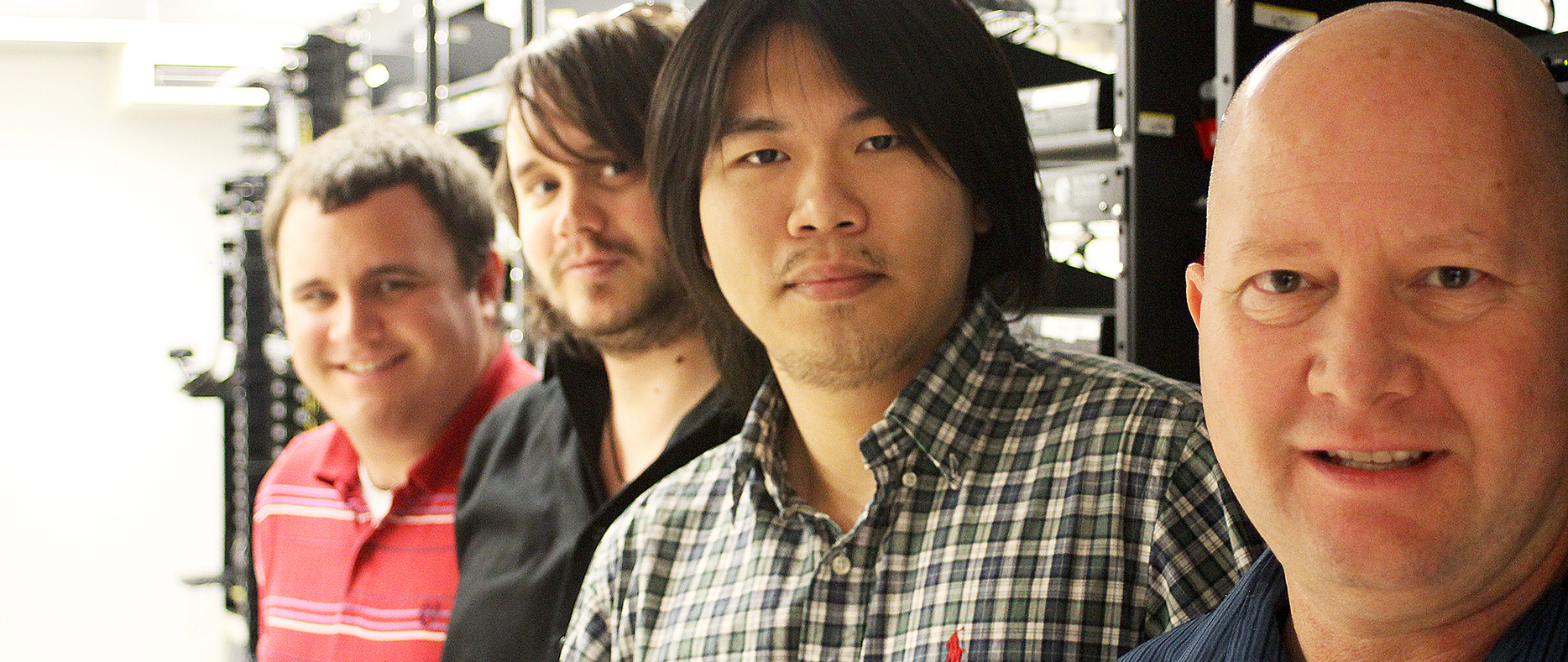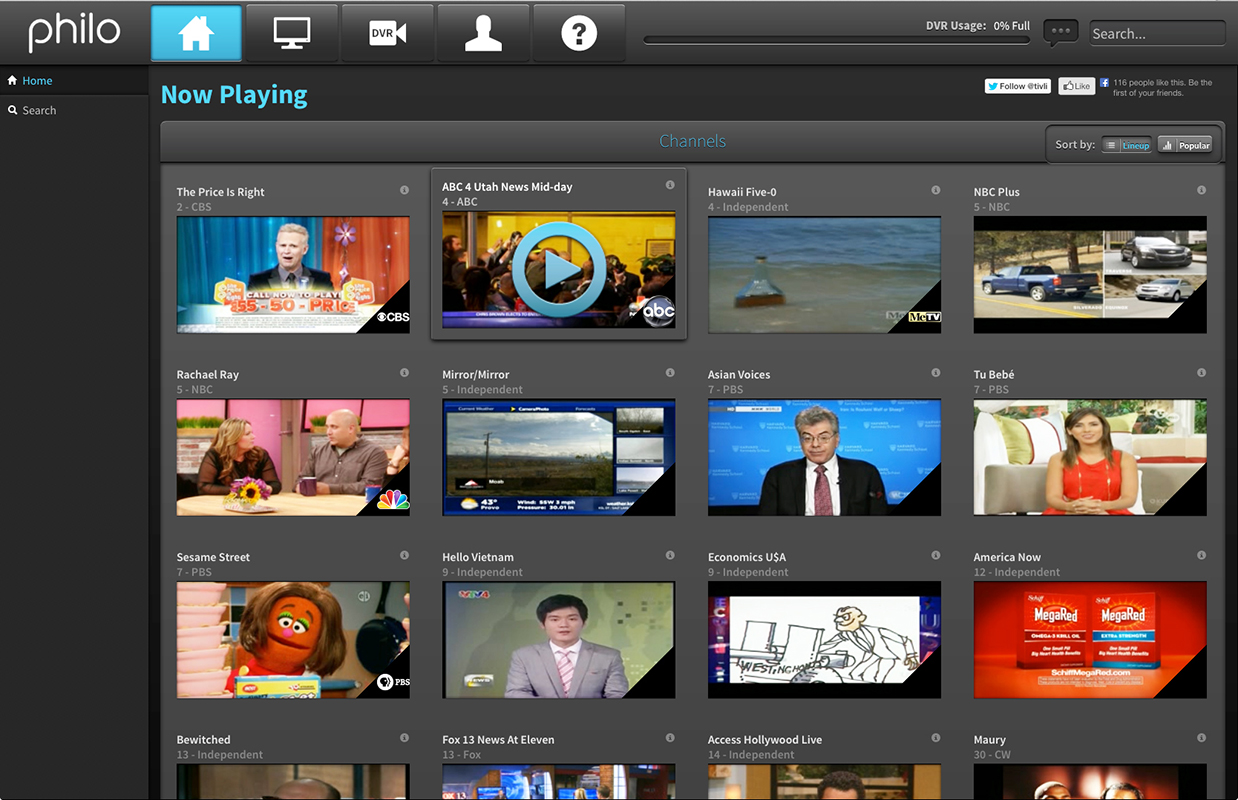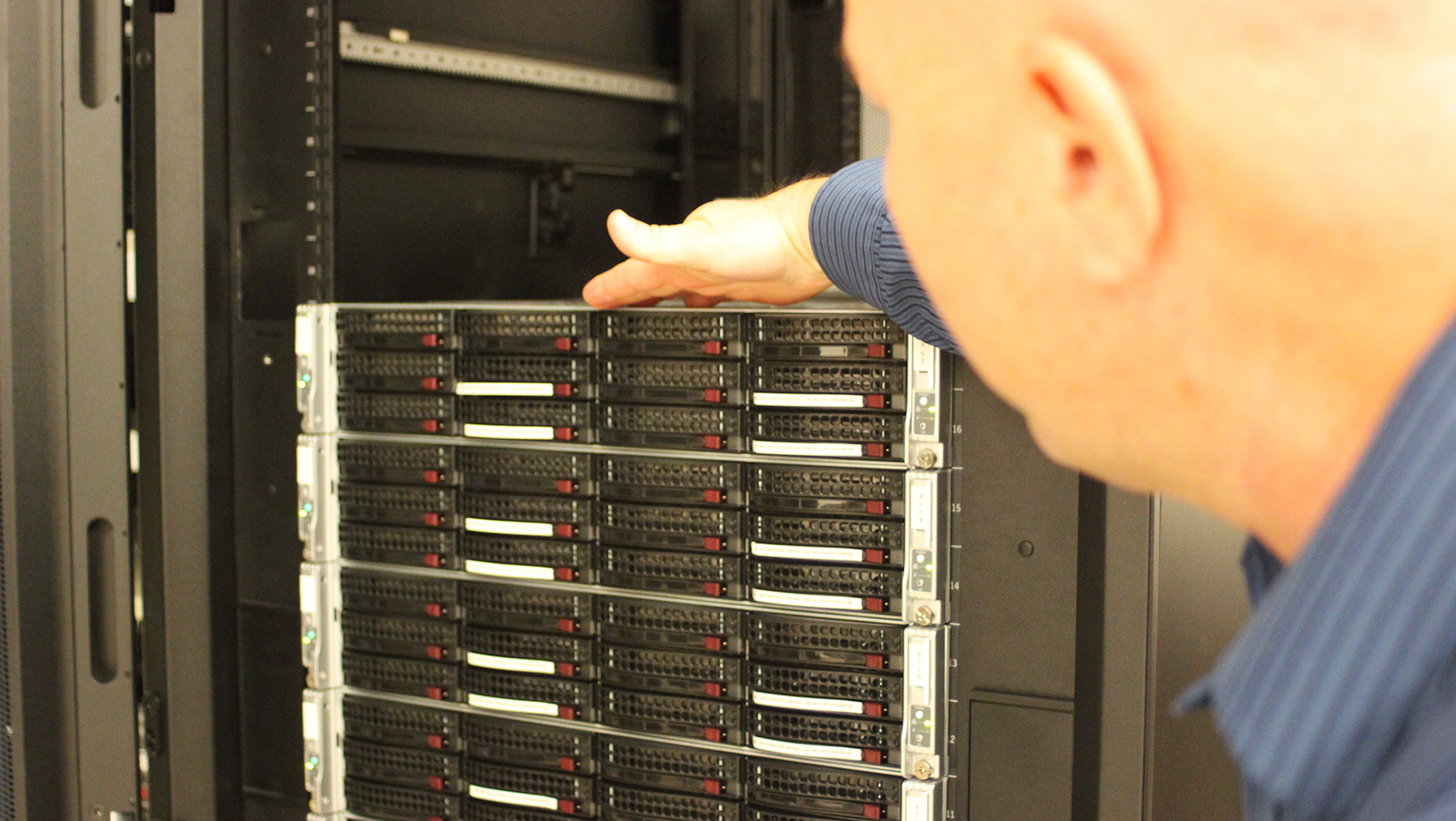Philo gives new meaning to 'network television'
IPTV would deliver campus cable service over the data infrastructure, bringing the U closer to an all-digital future

When you talk television in Utah, there’s one name that’s hard to escape: Philo T. Farnsworth.
The Utah-born inventor was a pioneer in moving-image technology, securing 165 patents in his lifetime and literally changing the way we view the world. Atop the Oquirrh Mountains, 35 radio and television broadcast towers crown Farnsworth Peak, named in honor of the man buried in the Provo Cemetery.
So there’s a certain serendipity that Tivli, an IP-based streaming television service currently in a proof-of-concept phase at the University of Utah, decided to change its name last month — to Philo.
“I think we were just looking for a brand that really represented innovation, and we found it in Philo,” said spokeswoman Alana Davis.
UIT’s University Television, or UTV, provides programming to the 2,700 students who live on campus as well as guests at the University Guest House and UNI building, among others. Unified Communications’ John Wardle has been leading an initial test to see whether Philo’s IPTV service might be a practical way to bring UTV’s programming and infrastructure in line with the future of digital television — one that straddles old and new systems.
“The issue with going all digital and cutting off the old copper system is people still buy the TVs. So you’re tied into a set-top box if you want to go to a TV,” Wardle said. “A lot of times it’s a proprietary set-top box, based on what type of digital signal you’re sending. There are some, like our IPTV system that we’re testing, that will work with a Roku box, which currently starts at $50. That’s what we liked about Philo.”
UTV’s initial test phase allows about 50 users to stream 30 different channels across the university’s data network. A handful of boxes in the UTV data center located in student housing take incoming campus television signals and convert them to streaming high-definition feeds accessible through Philo’s home screen. The channel selection at this point is a fraction of UTV’s current 120-channel lineup, but the technology scales easily enough should the university decide to adopt the service.
UTV’s student technical assistants Michael Frogget, Jake Stout and Yi Zhang are pushing the system hard to make sure it meets expectations. The U is also putting Philo through its paces to help determine whether the service could meet the standards of Internet2’s Net+ program, essentially vetting it for other institutions that might consider using it on their campuses.
Philo’s roots run deep in the college landscape. The service began on the campus of Harvard, which didn’t provide television service in its student housing. So two students created their own, lining their dorm room with foil to catch over-the-air signals and allowing anyone with a campus email to log in to get streaming channels. Their early success led to a more savvy solution, and eventually grew to include other colleges in a full-fledged endeavor.
The company recently raised $6.3 million, including from the likes of billionaire
investor and media mogul Mark Cuban, to push its offerings farther. There are nine
schools listed as customers on Philo’s website, including Pepperdine, Yale, University
of Washington, and Stanford.
Naturally, moving the television stream from a dedicated fiber/copper system to the existing data network means pushing more packets, but Wardle and Philo are confident the impact would be minor.
“Video is going to take up some space, but YouTube usage is estimated to average about 17 percent of network traffic in the U.S., and I wouldn’t expect it to be more than that,” Wardle said.
There are also many benefits to using Philo.
“I think the big benefits for the university are that Philo works on a variety of student devices around the network. We provide cloud-based DVR, and we’re a fully managed solution. University IT doesn’t need to upgrade the software,” Philo’s Davis said. “We have simple authentication integration with existing databases. We use the campus backbone and don’t use inbound Internet bandwidth. And there’s less piracy.”
Campus administrators are excited about the prospects.
“It seems pretty cool, especially if it’s expanded to all of the cable channels that are offered,” said Michael Walker, IT manager for Housing and Residential Education. “As far as a being able to use the mobile devices, that’s something that our students will want to do.”
Wardle notes that although most UTV customers have a laptop or mobile device that could stream Philo, their expectation still is to plug in a standard TV and have a signal.
“We’re testing IPTV, looking at digital, changing out the whole system, but we will always use the analog system until we’re told not to or until it dies,” he said. “So the copper going to these buildings, that little port in the wall has got to have something on it so their TVs will work without a set-top box.”
Tony Murillo, IT director at the Huntsman Cancer Institute, is intrigued by the possibility of adding service in places that may not be hard-wired for television.
“I know every time someone asks for TV in their area I have to think whether I want
to run cable over there,” he said, adding that a Roku box paired with Philo could
solve a lot of those issues. “If we’re moving things around or need to reconfigure
things, that would give us more flexibility that we don’t have now.”
As with many new services, there’s always one factor that weighs heavily into the deliberations: price.
Initial quotes for Philo’s service are favorable when compared with the typical cost a homeowner would face for a similar level of service.
There are also equipment upgrade costs with IPTV, but as Wardle notes, the existing system is reaching the upper limits of its expected life, so that cost exists no matter the outcome of the Philo test.
“With what UTV charges we’re able to cover all of our programming cost, all of our equipment cost, and all of our salaries. So this is a cost-recovery service,” he said. “We don’t tap into any UIT money at all. It all pays for itself. So IPTV will reduce the cost in the long term.”
The next step is to expand the test to all of University Housing customers to really get a feel for how the service responds. Then, Unified Communications will assess whether IPTV and Philo are a good fit.
“We’re moving slowly with this on purpose so we can have a good input and feedback opportunity,” Wardle said, “because it may be that this is not the solution that we need. But I’m excited about going to all-digital.”
